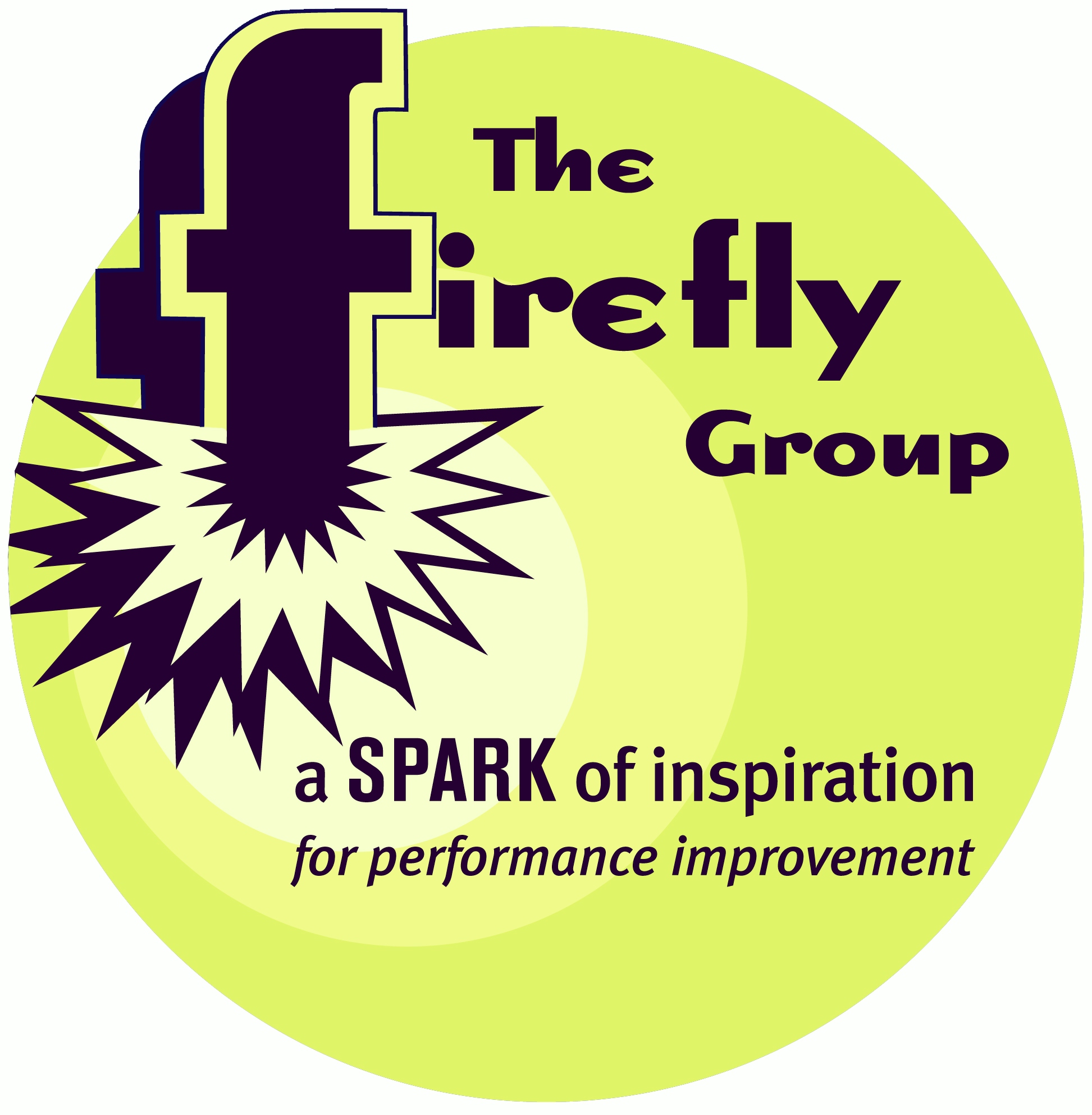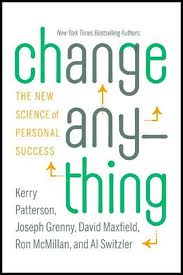



September 2011
NEW: My book, Say It Quick! 99-Word Stories about Leadership, Learning, and Life is now available! Click HERE to learn more.
Readers Respond: Make your contribution to our growing list of how to make meetings work better which began with the August 2011 News Flash.
In this Issue:
|
Say
It Quick |
Discoveries bits of serendipity to inspire and motivate |
Ideas fuel for your own continuous learning |
Activities tips and tricks you can try today |
| On a Roll | Change Anything | Learning to Change | Changing to Learn |
What does it take to make things different? Find out how change happens beginning with this story in exactly 99 words.
On
a Roll
In the office kitchen, a roll of paper towels sits on the counter. Though
handy, it takes up space, is hard to dispense, and often ends up in the sink.
One day I found the paper towels hanging above the counter. Here I've been tolerating something that was inefficient and unhelpful just because that's the way it's always been!
128 sheets per roll and a minimum of one roll a week for 7 years, that's at least 46,592 sheets. How many squares of paper get ripped off before we change something that's "always been that way?"
 Change
Anything
Change
Anything
by Kerry Patterson, Joseph Grenny, David Maxfield, Ron McMillan, and Al Switzler,
Grand Central Publishing, © 2011 by VitalSmarts, Inc. ISBN 978-0-446-57391-7
Change anything. That's quite an inviting promise, especially if you think of the many personal changes that are so difficult to make - and the many "squares of paper" that represents! But Patterson and his co-authors have identified six forces that make change difficult and they argue that, because we usually don't see these forces, we are unable to resist them and stick with our intention to change.
| "It's not
that some people have willpower and some don't. It's that some people
are ready to change and others are not." -- James Gordon, M.D. |
What I find most immediately appealing about Patterson's approach is that he exposes the "willpower myth," the notion that if only we tried harder, kept to our principles, or stayed morally straight, we could lose 20 pounds, control our temper, or manage our credit cards. Patterson focuses on the social and structural motivators and abilities that need to be in place to support our will to change. The best intentions in the world cannot stand up against a world of peer pressure and environmental factors pulling us in the opposite direction of our goal. It's a simple premise but that doesn't make the pitfalls easier to avoid!
Change Anything does more than highlight the forces working against our desired change. The book also points out how to turn those same forces to our advantage. For example, if being around people who have unhealthy eating habits makes it hard to stick to a diet, then having a friend on the same diet can promote the desired change. Add to this some knowledge about nutrition, remembering one's personal health goals, and filling one's environment with healthy food choices and one's ability to change jumps as much as 10% according to the authors.
Change Anything is just one element in an on-line business of personal success tools including goal setting and coaching that is available from the authors. Click this link to see several short videos that illustrate the impact of the forces that usually work against change. http://www.changeanything.com/exclusive Using children as subjects, the videos illustrate typical behavior when social and environmental forces conspire against one's personal goals.
Though you could invest in the whole Change Anything system of goal setting and personal coaching, the book by itself is enough to get most people "on a roll" in a new, more desirable direction.
And when that happens, please !
| "They always
say time changes things, but you actually have to change them yourself."
-- Andy Warhol, artist |
Learning
to Change
The focus of Change Anything is doing things differently on a personal
level: I choose to change myself. But there is that other kind of change that
we don't choose: when someone (or something) wants us to change. When change
is out of our control and we feel we have no choice, one typical response
is resistance.
People resist change when they feel they have no options, when it's unexpected, when they don't know how long it will last, when it upsets their routine and invades their comfort zone. This type of change can be unwelcome because it forces us to experience cognitive dissonance - that uncomfortable feeling when current reality doesn't match with the world view we have taken for granted.
But change is how growth happens. We grow, and change, from the moment of conception until death - whatever age at which that happens. Even in old age, ears and noses grow larger. Our brains sprout new neurons and learn new tricks. From the beginning of each day to the end, change is continuous. In the morning you put a slice of bread in the toaster and the heat changes it into a tasty, crunchy breakfast. And while you are waiting for the bread to become breakfast, your coffee is changing from hot to cold!
We talk a lot about managing change in organizations: how to keep the peaks and valleys from being so extreme; how to make things predictable. Perhaps, instead, we should learn to manage our cognitive dissonance. We can look at changes as opportunities while at the same time being willing to examine our past to figure out why we are clinging to the old. This doesn't mean every change will be good. But doing both, expecting a positive future while reflecting upon the past, we are in a better position to discern the best path that combines the way things were and the way they will be.
| "To
exist is to change, to change is to mature, to mature is to go on creating
yourself endlessly." -- Henri Bergson, philosopher |
Changing
to Learn
Change is a critical element in learning. The whole purpose of learning is
to do something different and if you do something different, you must have
changed. Yet between learning and changed behavior, there seems to be a disconnect.
A friend recently told me that subject matter experts in his organization continually focus on the vast quantities of information they believe people should know about their topic. However, they spend little effort thinking about what they want people to do differently - how they want them to change - as a result of their training.
In another example, a few weeks ago I sat in on a workshop for school teachers. The focus was "performance-based curriculum design." The participants were learning how to structure a class so that students would be able to demonstrate their ability to do something differently. Apparently some teachers have mistaken information for learning. Though it certainly is part of the picture, information does not produce growth or change.
Information by itself is helpful at a cocktail party or watching million-dollar game shows. But that information only really makes a difference when it is put to use and our work, life, or the world changes.
The challenge this month is to find an example where information has been mistaken for learning. Think of a situation when someone, maybe you, has been going through the motions, ripping off squares of paper towels and believing change has happened. When you find an example, . Or, better yet, do something to change it!
|
If you like what you have read in this issue, I would like to bring the same innovation, creativity, and playfulness to your next meeting or learning event. Whether you need a keynote speaker, or help with strategic planning, performance improvement, or training facilitators and trainers in your organization, I look forward to your call (802.257.7247) or . -- Brian |
Read previous
issues. Click Library!
To add or delete your name to our mailing list, email
with a short note in the subject line.
I want this newsletter to be practical, succinct, and thoughtful. If you have suggestions about how I can meet these criteria, please let me know! Send me an with your thoughts and ideas.
Home
| Services
| Products
| Mission
| Ideas |
The Group
| The Buzz
(c)
2005 - 2011 The Firefly Group